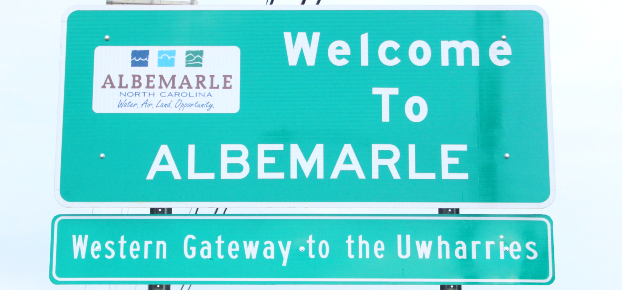Council approves staff to enter contract to develop stormwater program
Published 3:55 pm Tuesday, February 16, 2021

- Albemarle, North Carolina
|
Getting your Trinity Audio player ready...
|
One of the biggest issues over the years for many Albemarle residents has been the constant flooding following heavy rainfalls — especially for people living near streams or creeks.
Due to Albemarle’s aging infrastructure, which dates back to the beginning of the mill years, and the increased rainfall intensity over the years, the city is susceptible to flooding and stormwater runoff. The city also has no mapping records of the stormwater system and a maintenance program has never been established.
Though city staff has worked to clean up the streams and waterways, it’s only been a stopgap measure; once it rains, many of the same areas continue to flood.
Trending
After a particularly nasty rain last June, which totaled around four inches in a matter of hours, residents appealed to city council members to work on the issue. Many spoke of fearing for their own safety due to the heavy accumulation of water seeping into their homes. Council authorized staff to work on a multi-year effort to address the issues.
Since then, city staff formed a six-member storm water project team to help address the issue. A request for quotation for a storm water engineering firm was issued. Through a vetting process implemented by the project team, Charlotte-based WK Dickson, a community infrastructure consulting firm, was identified as the choice among eight bidders.
Though Dickson has offices in several southern states, Public Works Director Ross Holshouser said the reason the firm stood out compared to the others was “their involvement in North Carolina municipalities in counties” and because “some of the work was comparable to what we were looking for in Albemarle.”
The council has approved entering into a contract with WK Dickson to develop both a stormwater management plan and program. Though it will take years to implement, stormwater will eventually end up being a public utility like water and sewer.
“I am proud of city staff and our city council on their strategic and proactive decision last night that will position us to better address stormwater issues for generations to come,” Assistant City Manager Nyki Hardy, a member of the storm water project team, said Tuesday.
WK Dickson’s presentation
Trending
Tom Murray, Raleigh stormwater program manager with WK Dickson, gave a short presentation about the importance of having a stormwater program, especially for a city like Albemarle, which has aging infrastructure (pipes, catch basins) that hasn’t been replaced and is more vulnerable to runoff. He said the typical design life for infrastructure is generally between 40 and 80 years.
The city could qualify to be part of the National Pollutant Discharge Elimination System (NPDES) Municipal Separate Storm Sewer System (MS4) program. It’s a federal mandate, managed by the state, that would require the city to have a stormwater program. It would include pollution prevention measures, treatment or removal techniques, monitoring, use of legal authority and other measures to control the quality of stormwater discharged to the storm drains.
Murray said that while Albemarle is not a part of the program — in North Carolina, municipalities must have a population greater than 10,000 and density greater than 1,000 people per square mile — based on the results of the U.S. Census, “it’s likely the city could be designated into the program.”
If the state designates the city into the MS4 program, it would have to comply with the program requirements.
If Albemarle is ultimately not designated an MS4 program, it could establish a stormwater fee structure. In 2018, for example, there were 88 stormwater utilities across the state with numerous fee structures. The fee would be based on demands for service, similar to water and sewer, and could be tailored to be more affordable to households in Albemarle.
Similar size municipalities that have stormwater fee structures include Mooresville, Kernersville and Elizabeth City. Across the state, fees can range from as low as a few dollars a month to as high as about $12 a month, though the average is somewhere in the middle, Murray said.
When discussing what kind of stormwater program to enact, Murray stressed it is important to understand that stormwater management is interconnected and different components of the infrastructure interact together.
“What you don’t want to do is fix one problem and just move it down stream and create another problem,” Murray said.
While many details will be shared in the months to come, Murray outlined the stormwater program development timeline. It will include a community evaluation and needs assessment, a utility rate study, a pilot watershed study and a prioritized capital plan. As part of the development, Dickson also wants to hear from the public, to gauge what’s most important to them.







